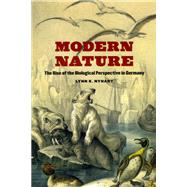
Note: Supplemental materials are not guaranteed with Rental or Used book purchases.
Purchase Benefits
What is included with this book?
Lynn K. Nyhart is professor of history of science at the University of Wisconsin–Madison and author of Biology Takes Form: Animal Morphology and the German University, 1800–1900, also published by the University of Chicago Press.
| Acknowledgments | p. xi |
| Introduction: The Biological Perspective and the Problem of a Modern Nature | p. 1 |
| Identity, Mobility, and Place | p. 8 |
| Popular Science and Populist Natural History | p. 15 |
| The Biological Perspective and the History of Biology | p. 20 |
| Ghosts and Shadows | p. 25 |
| Tracing the Biological Perspective | p. 31 |
| Bringing Life to Natural History | p. 35 |
| Practical and Popular Natural History | p. 35 |
| The Taxidermic Life | p. 38 |
| Against the "Terrorism of System": Martin on Taxidermic Displays | p. 50 |
| Stuttgart: Representing Nature for the Fatherland | p. 56 |
| Commercial Displays: Nature as Spectacle | p. 61 |
| Bringing Nature's Past to Life | p. 67 |
| Public/Private, Science/Art, Elite/Popular: Natural History Institutions and Values | p. 74 |
| The World in Miniature: Practical Natural History and the Zoo Movement | p. 79 |
| The Zoo as a Cultural Institution | p. 83 |
| Designing a World in Miniature | p. 92 |
| Caring for Animals: From Daily Life to Nature Protection | p. 107 |
| The Circulation of People and Ideas | p. 117 |
| Conclusion | p. 123 |
| From Practice to Theory: Karl Möet;bius and the Lebensgemeinschaft | p. 125 |
| Karl Möet;bius: Upwardly Striving Youth | p. 127 |
| Natural History in Hamburg | p. 130 |
| Natural History Activist | p. 132 |
| The Fauna of the Kiel Fjord | p. 138 |
| From Hamburg to Kiel | p. 145 |
| The Oyster and Oyster-Culture | p. 152 |
| Conclusion: Social Mobility and Ecological Theory | p. 158 |
| The "Living Community" in the Classroom | p. 161 |
| Natural History and School Reform | p. 165 |
| Friedrich Junge and The Village Pond | p. 173 |
| The Spread of the Village Pond Gospel | p. 181 |
| The Village Pond Curriculum as Heimatkunde | p. 192 |
| Conclusion | p. 195 |
| Reforming the Natural History Museum, 1880-1900 | p. 198 |
| The Emergence of the Professional Curator | p. 203 |
| The Institutional Landscape | p. 214 |
| Dual Arrangement | p. 223 |
| The Museum as a Center for Biological Knowledge | p. 240 |
| Conclusion | p. 246 |
| Biological Groups, Nature, and Culture in the Museum | p. 251 |
| The Kunde Projects | p. 253 |
| The Museum füet;r Natur-, Vöet;lker-, und Handelskunde in Bremen (1896) | p. 257 |
| The Altona City Museum (1901) and Heimatkunde | p. 268 |
| The Museum füet;r Meereskunde (1906) | p. 278 |
| Biological Groups, Modernity, and the Representation of Nature | p. 289 |
| From Biology to Ecology | p. 293 |
| Biologie and Secondary School Reform | p. 295 |
| Biologie as Popular Natural History | p. 307 |
| From Biology to Ecology | p. 314 |
| Pedagogical, Popular, and Professional Ecology | p. 320 |
| Museum Research and the Rise of Ecological Animal Geography | p. 323 |
| Exploring Life in the Ocean | p. 325 |
| Making Animal Geography Ecological | p. 333 |
| Ecological versus Historical Zoogeography | p. 344 |
| Ecological Animal Geography and the German Natural History Museum | p. 352 |
| Modern Nature | p. 355 |
| Bibliography | p. 369 |
| Index | p. 413 |
| Table of Contents provided by Ingram. All Rights Reserved. |
The New copy of this book will include any supplemental materials advertised. Please check the title of the book to determine if it should include any access cards, study guides, lab manuals, CDs, etc.
The Used, Rental and eBook copies of this book are not guaranteed to include any supplemental materials. Typically, only the book itself is included. This is true even if the title states it includes any access cards, study guides, lab manuals, CDs, etc.